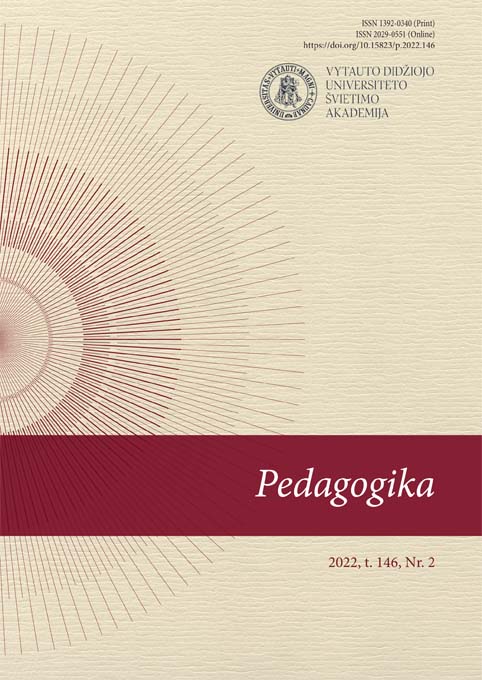Mokinių matematikos pažangumo ir mokytojo elgesio, valdant klasę, sąsajos: ką rodo mokymosi duomenų pirminė analizė
The Relationship Between Students’ Math Achievements and Teacher‘s Behaviour Managing the Classroom: What Does the Primary Analysis of Learning Data Show
Author(s): Agnė Brandišauskienė, Olga IurasovaSubject(s): Education, School education
Published by: Vytauto Didžiojo Universitetas
Keywords: Students‘ achievements; Teacher‘s behaviour; Classroom management; Frequent assessment; Praise; Remarks; Learning data analysis;
Summary/Abstract: Effective classroom management, setting classroom rules, and responding appropriately to students’ disruptive behaviour comprise some of the most significant factors influencing students’ math achievements. At a theoretical level, we can distinguish six different approaches to classroom management: behavioural, internal control, ecological, discourse, curriculum, and interpersonal relationships. At a practical level, teachers usually integrate elements of all six approaches to correct students’ disruptive behaviour. This paper presents learning data analysis from 12 schools in one city for the period from 2020 to 2021 and analyses the impact of different teacher behavioural variables (frequent assessment, praise, remarks) on students’ mathematical achievements. The primary analysis of learning data shows that students’ achievements in mathematics are not dependent on certain teacher’s behaviour variables managing the classroom. The frequency of assessment, teacher’s praise, and making remarks on students’ behaviour sent to parents or students do not have any impact on mathematics achievements of the latter. However, have been found that teachers are several times more likely to make remarks than praise, although some researchers suggest that praise can be effective. Recognising that classroom management, as one of the highly significant elements of quality teacher’s performance, is a complex phenomenon, further research is needed.
Journal: Pedagogika
- Issue Year: 146/2022
- Issue No: 2
- Page Range: 60-79
- Page Count: 20
- Language: Lithuanian

